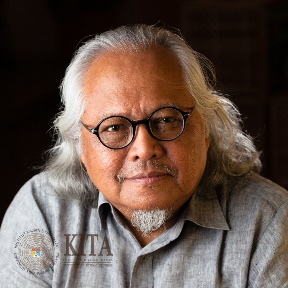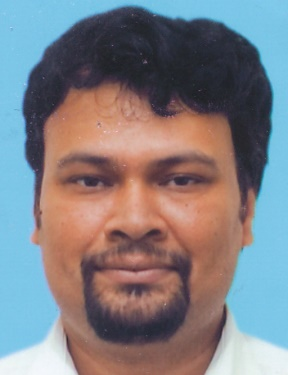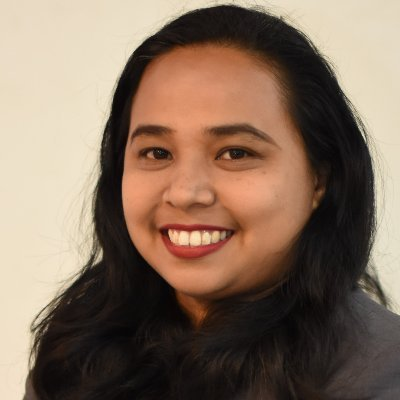![]()

Shamsul Amri Baharuddin
Fellow Academy of Science Malaysia
Chairholder, UNESCO Chair on Social Practices in Intercultural Communication and Social Cohesion
Research Area: Politics, Culture and Economic Development; Ethnicity and Identity Formation; Muslim Modernization; Colonial Knowledge
Brief introduction: Distinguished Datuk Prof. Dr Shamsul Amri Baharuddin has over 40 years of teaching & research experience in Anthropology and Political Science (since 1973) with Universiti Malaya (UM) and Universiti Kebangsaan Malaysia (UKM – the National University of Malaysia). Short stints experience at CNRS Paris & Toulouse University, France; Bielefeld University & Passau University, Germany; Osaka University & Kyoto University, Japan; Leiden University, The Netherlands; Lund University, Sweden; UNPAD, Indonesia; National University of Singapore (NUS); University of Hawai’i; Harvard University; University of Melbourne & Monash University, Australia.
Past and Present Appointments at the National University of Malaysia: Professor in Social Anthropology (from 1991); Dean, Faculty of Social Sciences and Humanities (1997-1999); Director, Institute of the Malay World & Civilization (ATMA), 1999-2007; Founding Director, Institute of Occidental Studies (IKON) 2005-2007; Founding Director, Institute of Ethnic Studies (KITA), UKM, 2007-now.
Achievements: He spent over 35 years researching, writing and lecturing on the theme “politics, culture & economic development “in Southeast Asia, with an empirical focus on Malaysia and Indonesia. His books have become standard references in Australia, Japan, the UK, Sweden and USA on courses on politics & culture on Southeast Asia. A much sought-after analyst on Malaysian current affairs in both local and international mass media (Al-Jazeera, BBC, ABC Sydney, etc.). He has designed the 10 year- blueprint for the National Unity (2021-2030) on behalf of the Federation of Malaysia.
Title: Agree to Agree, Agree to Disagree”: Managing Social Cohesion in Malaysia

Prof. Nor Liyana Mohd Shuib
University of Malaya, Malaysia
Research Area: Personalization, e-learning, data science, artificial intelligence application in Education
Brief introduction: Liyana Shuib obtained her Master of Information System (Data Mining) from Universiti Kebangsaan Malaysia in 2005 and a Ph.D. from the University of Malaya, Malaysia, in 2013. She is currently a Professor at the Department of Information Systems, Faculty of Computer Science & Information Technology, University of Malaya, Malaysia. Recognized as one of the top 2% of scientists globally based on Stanford University's ranking, she has also been honored as a recipient of the prestigious Australian Award. Prof. Liyana has published extensively in reputable journals and conference proceedings both locally and internationally. Her research interests include personalization, e-learning, data science, and artificial intelligence applications in education. She has received over 20 awards from international innovation competitions, showcasing her contributions to impactful research and development. As a senior member of the IEEE Computing Society, she actively engages in the advancement of her field. Currently, she serves as the principal investigator for multiple research grants within the Faculty, leading innovative projects that bridge academia and real-world applications.
Title of Keynote Speech: Ethical Awareness in AI-Driven Learning: A Student Perspective
Abstract: As Artificial Intelligence (AI) becomes increasingly integrated into education, understanding students' awareness of AI applications during their learning journey is crucial. AI tools offer significant benefits, such as personalized learning, automated feedback, and resource optimization. However, the extent to which students are aware of the ethical implications, including data privacy, algorithmic bias, and the influence of AI on their learning habits, remains unclear. This study aims to assess students’ understanding of AI applications and their ethical considerations in educational contexts. By exploring their awareness, attitudes, and behaviors, this research identifies gaps in knowledge and potential risks associated with uninformed use of AI. The findings provide insights into how students perceive AI's role in their education and the challenges they face in balancing AI's benefits with ethical and autonomous learning practices. The study emphasizes the need for targeted educational initiatives to enhance students’ ethical literacy regarding AI. Such efforts will empower students to engage critically and responsibly with AI tools, fostering not only their academic success but also their ability to navigate the ethical landscape of AI-driven education.about AI tools. It also highlights the need for students to take an active role in understanding the broader implications of AI in their education. By cultivating this awareness, students are empowered to use AI responsibly and contribute to its ethical evolution in education.

Assoc. Prof. Sameer Kumar
University of Malaya, Malaysia
Research Area: Social Networks (Social Networking, Social Media, Informetrics, Scientometrics); Asia-Europe Relations (Asia-Europe Studies, History of Southeast Asia, ASEM, ASEAN, Socio-Cultural Co-operation); Information and Management (Information Management, Project Management, Big Data, E-Commerce, Entrepreneurship, Business)
Brief introduction: Dr. Sameer Kumar has a PhD in Social Networking and is presently working as Associate Professor at Asia-Europe Institute, University of Malaya. He has over two decades of work experience in the industry and academia and also holds a PMP® (Project Management Professional) certification from PMI, USA. He has been regularly listed in the Stanford University top 2% world scientist list from 2021 to 2024. At Asia-Europe Institute (AEI) Dr. Sameer teaches Masters level courses on Information Technology, Business and Asia-Europe studies. He has been the Program Coordinator for International Masters in Information Management (2014 - 2016) and is currently the Programme Co-ordinator for International Masters in ASEAN Studies program (2016-2025) In 2015 he was the visiting scientist at Ilmenau University of Technology, Germany. He was also a key member and co-ordinator of the Jean Monnet center of excellence (2017-2021). He has managed funded projects, extensively published in top-tier journals and has been in panels in several international foras. He regularly reviews for top ISI Web of Science journals and supervises candidates at both Masters and PhD levels.
Title of Keynote Speech: Leveraging Social Network Analysis for Strategic Decision-Making in Diverse Domains
Abstract: The presentation would explore the transformative role of Social Network Analysis (SNA) in optimizing systems and decision-making across diverse domains. I would begin with foundational concepts, drawing parallels between natural systems, such as ant colonies, and human networks. This would help illustrate the principles of decentralized coordination, emergent intelligence, and the importance of collective action. Then by using real-world applications, the presentation would highlight how SNA could uncover hidden patterns and relationships in smart cities, e-commerce, social media, or academia. For instance, a simulated network of intersections, traffic lights, and resource hubs demonstrates how centrality metrics—degree, betweenness, and closeness could optimize traffic flow, resource allocation, and emergency responses. I show how in field such as e-commerce, SNA successfully identifies influential customers for targeted marketing, while in social media, it analyzes hashtag networks to understand trends and virtual communities. For smart cities application I present a network of intersections, traffic lights, and resource hubs to demonstrate how SNA optimizes traffic flow, resource allocation, and emergency responses by identifying critical nodes. I combine theoretical depth with practical insights, to position SNA as a powerful tool for fostering innovation, improving efficiency, and addressing global challenges across interconnected systems.

Assoc. Prof. Sri Devi Ravana
University of Malaya, Malaysia
Research Area: Data and Text Analytics, Data Mining, IoT and Smart Farming
Brief introduction: Sri Devi Ravana received the bachelor’s degree in information technology from the National University of Malaysia, in 2000, the master’s degree in software engineering from the University of Malaya (UM), Malaysia, in 2001, and the Ph.D. degree from The University of Melbourne, Australia, in 2012.,She is currently an Associate Professor with the Department of Information Systems, UM. She has actively collaborated with researchers from many countries, including The University of Auckland, The University of Melbourne, University of Leeds, The University of Hong Kong, and the National University of Singapore. Her research interests include information retrieval heuristics, text indexing, and data analytics. She received a couple of best paper awards in international conferences within the area of information retrieval. She was a recipient of the Competitive AUA Scholars Award, in 2019 and 2020. She also serves as an editorial board member for Scopus/WoS indexed journals.
